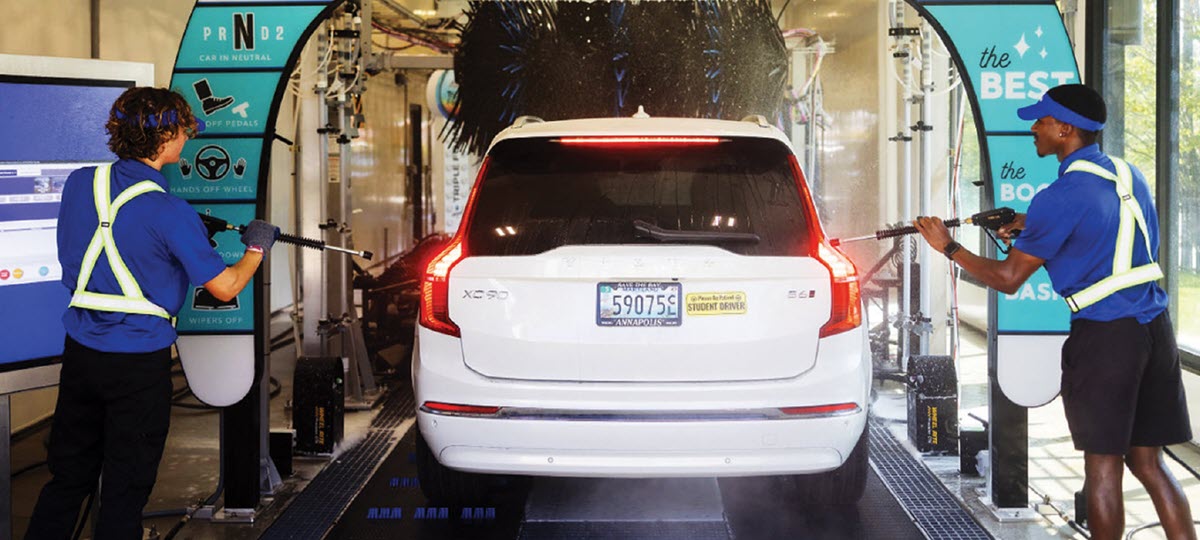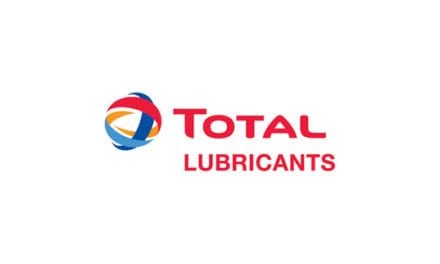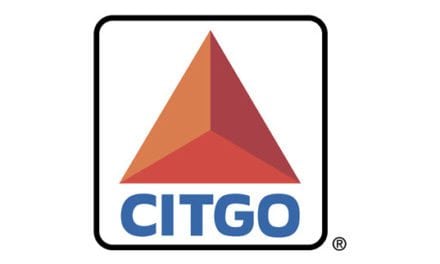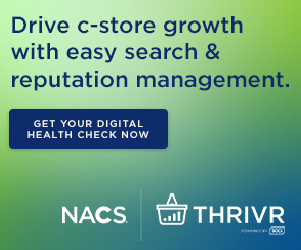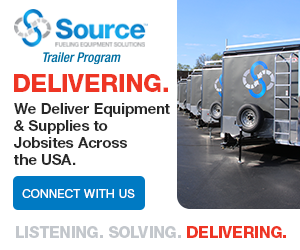For the Wills Group, the Splash In operation is an equal player with convenience and wholesale fuels.
By Keith Reid
What role does car wash play in your convenience operation? Perhaps you had to think for a few seconds to formulate a concise answer. For Mike Mulhern, the director of Splash In operations (the car wash division of Wills Group’s Dash In stores and SMO Motor Fuels’ marketing operation) the answer was immediate: “It’s one of the three legs—fuel, convenience and car wash—in what we refer to as a three-legged stool,” he said. “We are very serious about car wash and bullish on the opportunity.”
Dash In serves customers at 56 locations throughout Maryland, Virginia and Delaware. SMO Motor Fuels is a wholesale petroleum distribution network with more than 220 locations across the Mid-Atlantic region.
Splash In ECO Car Wash has 57 locations across the mid-Atlantic. Its “Go Green, Always Clean” initiative is part of Wills Group’s commitment to eco-friendliness, water conservation and affordability. Splash In customers can get a quick and quality wash at any location, typically featuring the Belanger FreeStyler soft-touch system, an open and inviting design with five foam brushes for a thorough clean, and Rain X complete surface protectant for increased shine, better surface protection and water repellency.
The Splash In concept goes beyond the Dash In footprint. It’s an offering throughout the Wills Group’s broader location network.
“Over the last 25 years, the Wills Group has grown through acquisition,” Mulhern said. “Most of the dealers of these gas stations that we purchased didn’t really use the car wash to its full potential, and we saw that as an opportunity.”
That opportunity was driven, in no small part, by entrants that came into the markets, such as Wawa and Royal Farms, and then by hypermarkets that started adding gasoline, such as Sam’s Club and Costco.
“We developed Splash In as a key value offering to support our operators,” Mulhern said. “We would come in with a new in-bay automatic, rebrand the location, paint it, clean or replace the windows, add the PVC paneling to the walls, brighten it up with LED lighting and install a new payment terminal. It was probably a $300,00 to $400,000 investment a decade or so ago.”
Tunnel Wash Operations
The same approach used with the initial acquisition expansion applied to the Dash In company operations and included rebuilds. As those opportunities began to dry up, the focus shifted to organic growth and with that, the exploration of tunnel washes.
“As we were perfecting this in-bay model, tunnel car washing started becoming a thing,” Mulhern said. “And we decided to investigate it and built one in Clinton, Maryland, in May 2019. It was just a pilot to understand the concept, and it is attached to a Dash In convenience site. Tunnel car washing is strategic for us, and we’re looking to add tunnel car washes where it makes sense from a brand density perspective and a financial perspective.”
He noted the approach is to build tunnel sites where there are several Dash Ins adjacent with high-performing in-bay automatic car washes. “We’ll consider a stand-alone tunnel, but our first pass is to do tunnels with fuel and convenience. And if we can’t fit a tunnel, that’s when we fall back to the in-bay automatic,” Mulhern said. “That’s the intent moving forward.”
Last year, the Wills Group purchased two Blue Hen tunnel car washes, the group’s first exploration of stand-alone car washes. These locations met the criteria of being adjacent to Dash In operations, and the goal is to rebrand them as Splash In.
One issue with tunnel washes, as is the case throughout the industry in virtually all areas of operations, is labor. That’s a challenge for Splash In, as well, but one it manages with the wash format. By using the express wash model, the tunnel facilitates the exterior cleaning process, but the customer is responsible for the interior and is provided with free vacuums. There is an attendant to help get the vehicle lined up on the conveyor and explain the various wash packages and membership options, but there is none of the detailing staff needed for a full-service wash.
Mulhern noted this is not a disadvantage from a customer perspective. “If you go to a full-service car wash where they clean the interior of your vehicle, those washes cost $60 to $70,” he said. “That’s when a car wash becomes a luxury, and you must be in affluent areas where it can be $2 million an acre. With the express wash, it’s affordable and quick.”
Wash Theater
The trend with the modern car wash is to excite the senses—lighting, sound, fragrance. The goal is to create excitement and engagement and to turn a relatively mundane process into something exciting for the driver and the family—perhaps even to make a car wash a special-event destination. Splash In appreciates the marketing hook, but in a more reserved manner.
“We try to appeal to the senses,” Mulhern said. “The triple foam, children see it and they think it’s cotton candy—it’s cool-looking. It smells like it’s cleaning the inside of your car, even though it’s not, because of this good fragrance. And the lighting is a mood setter, but we’ve tried to do it tastefully. One cool thing [is] we’ll put a purple light on the white wax, and it looks like it’s raining purple. … We’ve found that not everyone likes a lot of blinking lights, so you want to be selective. And we don’t want to just be some funky gimmick. We want people to know that this is a place they can trust.”
Wash Promotions
There are a variety of ways the car wash has been marketed relative to the convenience store over the years. Splash In’s initial approach with the in-bay wash format is a free wash from the Dash In app or 20 cents off per gallon with a wash purchase.
The stand-alone tunnels don’t have that opportunity now, though development work is underway to integrate all Splash In purchases with the app-based loyalty program. This is also poised to integrate with the Splash In membership program, which is currently only offered at the integrated Dash In tunnel locations.
“The plan is to rebrand the Blue Hen locations and immediately merge the databases,” Mulhern said. “That way, our Splash In customers can wash at any of our tunnels. We then start incorporating that within the app. We can develop membership redemptions, and our customers can redeem their tunnel membership at any of our wash sites.”
Mulhern continued, “Our goal is to eventually get all our members onto the Dash-In loyalty app. And once we do that, every time they go from the basic wash to the best wash or add in a la carte service, they’re growing points. And then those points can be combined to make a fuel discount or a free coffee or whatever they choose.”
Public promotions are fairly conventional.
“We run three seasonal promotions. We’ll do a winter promotion, a ‘pollen’ promotion and then a summer promotion,” Mulhern said.
Car Wash in a Tight Economy
Where does a car wash fit on the scale of needs and wants? As disposable income gets tight, “wants” tend to face pressure. However, there is the concept of “small luxuries.” The convenience industry benefits from this in general, because a customer might give up a range of big-ticket items but still stop in for that excellent cup of morning coffee as a small reward. With car wash, the customer might put off buying a new car and instead make their old car shine.
“I’ll tell you that, yes, we have experienced some churn due to the economic downturn or just people being concerned,” Mulhern said. “But what I’ve found is that people wash their cars to feel good about themselves. I think it energizes people. And people are moving away from washing at home, so as you see, [even with] challenges like the economy, the customer base is growing—[there are] more townhomes and condos where they don’t have spigots out back to wash their cars. So the car washing business is growing.”


